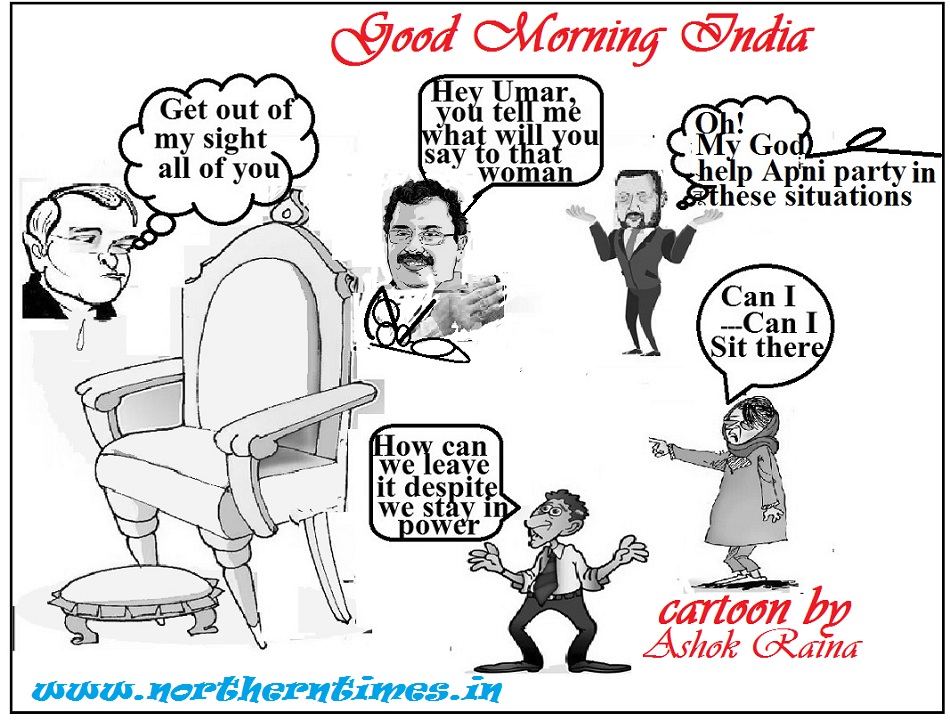|
Top Stories
|
| 909 CANDIDATES IN J&K GEAR UP FOR 1ST ASSEMBLY POLLS SINCE ARTICLE 370 REPEAL | | | |  909 CANDIDATES IN J&K GEAR UP FOR 1ST ASSEMBLY POLLS SINCE ARTICLE 370 REPEAL 909 CANDIDATES IN J&K GEAR UP FOR 1ST ASSEMBLY POLLS SINCE ARTICLE 370 REPEAL
Srinagar, Sep 15: Jammu and Kashmir is set to witness a crucial political contest as 909 candidates are in the fray for 90 assembly seats in the upcoming assembly elections.
A total of 1127 candidates had filed their nomination papers but the nomination of 164 candidates was rejected while 54 withdrew their papers.
The elections, scheduled to be held in three phases starting on September 18, mark the first assembly elections since the abrogation of Article 370 in August 2019, which stripped the region of its special status.
The elections are being closely watched as these are expected to shape the future political landscape of the newly-reorganised union territory.
The first phase of polling is set for September 18 and involves 24 assembly constituencies – 16 seats in the Kashmir division and eight seats in the Jammu division.
A total of 280 filed their nomination papers among which the nomination of 36 candidates was rejected while 25 withdrew their papers for the first phase of polling leaving 219 candidates in the fray.
The deadline for filing nominations for this phase was August 27.
Kashmir, known for its politically charged environment, is expected to see intense competition, with various regional and national parties fielding strong candidates.
For the second phase, scheduled for September 25, 329 candidates filed their nomination papers across 26 assembly constituencies spanning six districts of Jammu and Kashmir.
The nomination of 62 candidates was rejected while 27 withdrew their papers, leaving 240 candidates in the fray.
The constituency with the highest number of candidates is Habbakadal with 15, while Kangan has the least with six.
The third phase of polls on October 1 covers 40 assembly constituencies and has 450 candidates in the electoral fray.
As per the Election Commission of India (ECI)’s notification, the candidates can withdraw their nominations in the office of the respective Returning Officers, before the scheduled withdrawal date.
So far, the nomination process for the first two phases has been completed, with a total of 164 nominations 52 withdrawn and 98 rejected across both phases.
One notable trend in this election is the significant number of candidates with criminal backgrounds.
A total of 71 candidates with criminal cases are contesting the elections in the first two phases, raising concerns about the political landscape and the quality of representation.
Another striking feature of the 2024 assembly elections is the surge in independent candidates.
Across the first two phases, 214 candidates are running as independents, which includes those associated with the Awami Ittehad Party (AIP) led by Member of Parliament Engineer Rashid.
The AIP has fielded 26 candidates across different constituencies, indicating its strategic positioning to influence the election outcome.
The National Conference (NC) and Congress have entered into a key alliance to contest the elections together, aiming to challenge the Bharatiya Janata Party (BJP) and its increasing influence in the region. The NC has fielded its prominent leaders in the election, except for Farooq Abdullah, who initially indicated he would contest if Omar Abdullah did not.
However, Omar Abdullah, who had previously stated he would not contest while J&K remained a Union Territory, has since changed his mind and decided to enter the fray.
This move marks a significant shift in NC’s strategy, emphasising its focus on reclaiming political ground.
The Congress, under its newly appointed president in J&K Tariq Hameed Karra, is aggressively campaigning to regain its influence.
The party president is contesting from the Central Shalteng constituency, a strategic choice that could boost the party’s presence in J&K.
Other senior Congress leaders, including Ghulam Ahmad Mir and Viqar Rasool, are also contesting from key constituencies, demonstrating the party’s commitment to a strong electoral showing.
The NC-Congress alliance is viewed as a calculated move to consolidate anti-BJP votes.
Meanwhile, the BJP is leaving no stone unturned in its quest to win the elections and cement its influence in Jammu and Kashmir.
The party’s campaign is led by top national leaders, including Prime Minister Narendra Modi, Home Minister Amit Shah, and Defence Minister Rajnath Singh, who have been actively campaigning for BJP candidates across the region.
The BJP’s strategy centres on highlighting development projects, promising better governance, and focusing on national security to appeal to voters in both Kashmir and Jammu divisions.
Several regional parties are contesting independently.
The People’s Democratic Party (PDP), led by Mehbooba Mufti, the People’s Conference (PC) under Sajad Gani Lone, and the Apni Party, founded by Altaf Bukhari, have decided not to enter into any alliances. Each party aims to capture specific vote banks and leverage their regional strengths.
Their decision to go solo is also a strategic move to differentiate themselves from larger national parties and appeal to voters who are disillusioned with traditional political players.
The ECI has urged all eligible voters to participate in this democratic process and exercise their right to vote.
Security arrangements are being heightened to ensure peaceful conduct of the elections across all three phases.
| | | | |
|
|
| |
| |
|
|